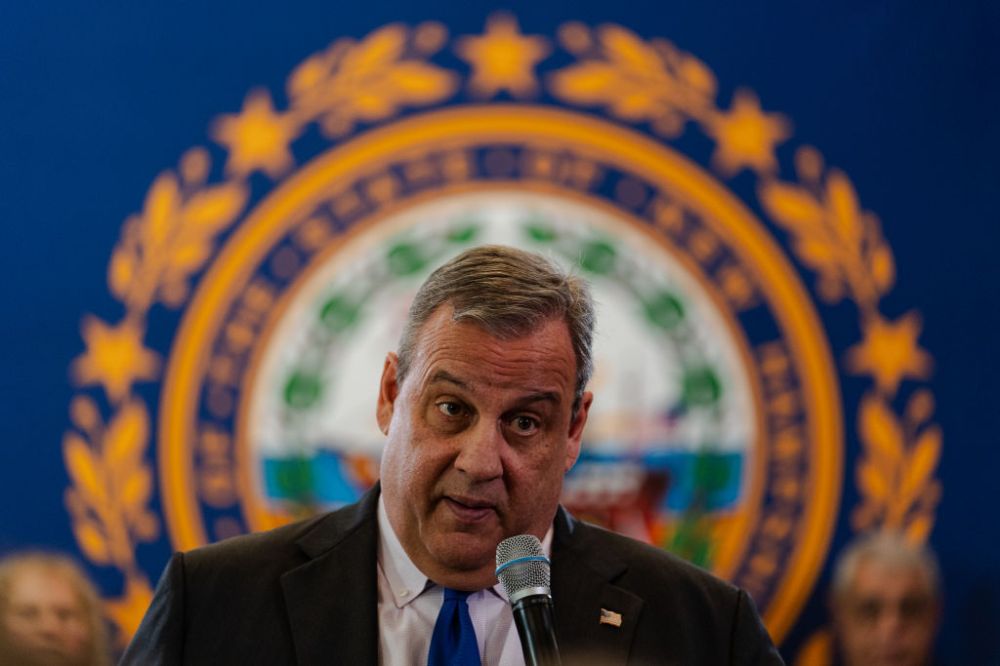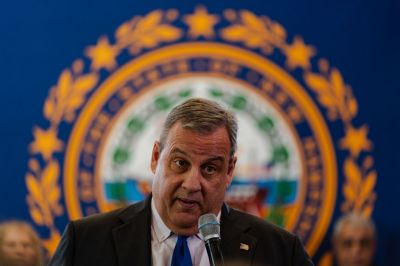One thing that distinguishes adults from children is our ability to manage our emotions. The desirable course isn’t always the sensible course: Adults understand that in a way children don’t.
In theory. Less so in practice.
For instance, once it became clear that former Harvard President Claudine Gay had plagiarized passages in some of her work, the plainly sensible course for her peers was to stop defending her. Preserving public faith in academia and the integrity of scholarship, especially at an institution as august as Harvard, should have mattered more than saving Gay’s job. “Zero tolerance for unethical behavior, no matter who does it” was the obvious position.
The problem for Gay’s colleagues and their ideological allies in American media is that they despise the right-wing activists who exposed Gay’s plagiarism, particularly culture warrior extraordinaire Christopher Rufo. The sensible course was to cut Gay loose but the desirable course, which these alleged adults couldn’t resist, was to grasp for excuses to spite their political enemies by denying them a coveted scalp.
They couldn’t manage their emotions. And because they couldn’t, they’ve made a pitiful spectacle of themselves following Gay’s resignation. Bad-faith allegations of racism, idiotic complaints about conservatives weaponizing plagiarism against, er, plagiarists—it’s a juvenile temper tantrum by some of the luminaries of American intellectual life. In the end, not only did they fail to save Gay, they revealed that their actual unspoken ethical standard for plagiarism is “lots of tolerance for unethical behavior depending on who does it.” Adults nowadays actually aren’t very good at separating what’s sensible from what’s desirable, particularly when political passions are inflamed. That’s the story of Gay’s resignation.
And it’s the story of this year’s Republican presidential primary, too.
Whatever else you want to call it when a candidate is indicted on a gazillion criminal charges and promptly gains a gazillion points in the polls, “sensible” ain’t it. Emotion, not reason, is the hallmark of the adults in this particular room.
I have a confession, though. I’ve been struggling lately myself with condoning what’s sensible over what’s desirable with respect to the coming primaries.
What’s sensible, clearly, is for the anti-Trump vote to consolidate behind a single challenger. That challenger should be Nikki Haley, as she’s the only candidate in the field within 25 points of Trump in any race. The less competition there is for Trump-skeptical voters, the easier consolidation will be. Which means Chris Christie needs to go, the sooner, the better.
It would be sensible. But would it be desirable?
Maybe he should hang in there after all.
“Chris Christie is a friend. But his race is at an absolute dead end,” New Hampshire’s Republican Gov. Chris Sununu, a Haley supporter, said in a recent interview. “Chris is only talking about Trump. That’s it, he’s kind of a one-man show. And I know he says he wants to stay in the race to speak the truth about Trump, but that translating to votes in a primary is a very different thing and he’s hit a ceiling.”
All true. Since mid-November, Christie has been stuck at 10 percent in Sununu’s home state while Haley has risen to a hair shy of 25. Ron DeSantis has underperformed egregiously there, choosing to focus on Iowa instead, yet he’s still just a point behind Christie in the RealClearPolitics average of New Hampshire polling. There’s no longer any scenario in which the former governor of New Jersey wins that state, if ever there was.
Even if you contrive a scenario in which Haley, DeSantis, and Vivek Ramaswamy all drop out, handing Christie a one-on-one death match with Trump, his gruesome unfavorability among Republican voters would ensure a Trump landslide.
Sununu’s also right that Christie spends most of his time talking about Trump. Consider a few quotes from his recent television ads. December 15: “I’m in this race because the truth needs to be spoken. He is unfit.” December 28: “I’m the only one saying Donald Trump is a liar.” January 3: “‘Don’t mention his name. Don’t criticize him. Don’t do anything.’ I can’t stand by and silently acquiesce to that.” When Christie was asked on Wednesday about Sununu’s criticism, he replied by bringing up—what else? “I remember when Chris used to care about Donald Trump,” he said of Sununu. “He’s the guy who came, I think, to the Gridiron Club and said that Trump belongs in a mental institution. And now he’s saying that he’d vote for him if he were the nominee.”
On Wednesday, he compared Trump to Jefferson Davis—unfavorably. As a longstanding Never Trumper, I admire the zeal of his (too recent) conversion.
But there’s nothing in any of this that resembles a strategy to actually win the primary.
What Christie’s doing might more aptly be described as an anti-strategy. The more he dogs Haley as a wimp who won’t speak the truth about Trump as boldly as he will, the more contemptuously his base of Never Trumpers in New Hampshire may come to view her. He could poison her ability to win them over even if he does ultimately quit the race before Primary Day. Guess which candidate would benefit if that happens.
Hint: It’s the same one whom Christie famously endorsed in 2016.
In other words, Chris Christie isn’t doing what’s sensible—he’s doing what he finds desirable. Speaking truths that the cowards around you dare not speak is exhilarating, particularly when it has moral force. The scorn he’s received from devotees of one of the worst political figures in American history must feel to him like a badge of honor. And the attention he’s gotten from the media for his crusade is doubtless gratifying, especially since this is his last hurrah as a political candidate. There’s a powerful appeal to the type of campaign he’s running.
But if his goal is to prevent Donald Trump from being reelected president, dividing the anti-Trump vote in New Hampshire for the sake of truthbombing a hostile Republican electorate is, shall we say, a curious way to achieve it.
Haley, not Christie, is the one who’s behaved sensibly by declining to criticize Trump in ways that would alienate most Republican voters and render her unviable. Consider, for example, this new soundbite from one of her latest town halls, in which she finally “took the fight” to Trump. To Christie, “taking the fight” to him would mean calling him an insurrectionist sociopath and probable felon who can never again be trusted with power. To Haley, it means grumbling about deficits.
She knows Trump is loathsome. She’d surely love to say so. (Her “disgust” bubbled to the surface briefly after January 6.) But she’s forced herself to do what’s sensible, not what’s desirable. And because she has, there’s a small chance that she’ll win New Hampshire and a teeny tiny—yet non-zero—chance that she’ll win the Republican nomination. Adults tend to perform more competently than children and this case is no exception: If the Trump era ends this spring, we’ll owe it to Nikki Haley’s self-discipline, not Chris Christie’s self-indulgence.
If Christie refuses to quit, however, we’re facing a disaster in which Haley not only loses a close race in the northeast that she might have won had he exited beforehand—but which anti-anti-Trump partisans would inevitably exploit to justify their continued membership in this disgraceful party. Trump wouldn’t have won the nomination if he hadn’t won New Hampshire and he wouldn’t have won New Hampshire if not for Never Trumper Chris Christie. It’s still a normal party! We can support it in good conscience.
So it’s settled. Christie should get out, right?
Well, not so fast.
The problem with asking Christie to quit the race for strategic reasons is that doing so implicitly validates cowardice as the sensible approach to Trump.
“I think he’s a smart guy. He wants to have a voice in this party,” Sununu said of Christie in an interview this past weekend, urging him to drop out. “So I just think he’s going to make the right decision in the end. He wants to make sure this party comes together.” On Wednesday, in a piece for The Bulwark, Will Saletan took righteous exception to that:
When Sununu advises Christie to “make a quick calculation” and bow out so that “this party comes together”—and so that Christie can continue to “have a voice in this party”—he isn’t just telling Christie to yield to Haley. He’s inviting Christie to be more like her. He’s encouraging Christie to practice the same craven self-preservation that gave Trump power over the GOP in the first place.
“In other words, Christie is right. [Haley is] a coward,” Saletan concluded. “The political case for Haley is the moral case against her.”
Correct. Haley the “adult” is also Haley the “coward,” another careerist refugee from the pre-Trump GOP willing to trade moral clarity for the sake of ambition. She’s a willing participant in the conspiracy of silence within the Republican establishment about how dangerous a second Trump presidency would be. And she’s been rewarded for that cowardice—something this newsletter and this publication typically and justly detests—with growing support among Republican voters.
Compare her views with Christie’s on whether Trump should be pardoned. “A leader needs to think about what’s in the best interest of the country,” Haley said last week. “What’s in the best interest of the country is not to have an 80-year-old man sitting in jail that continues to divide our country.” That’s a defensible position on the merits, but it stinks of fear and cynicism coming from a candidate who has resolved never to offend Trump’s voters. And it amounts to rewarding Trump’s ethic of intimidation by placing him above the law post-conviction, not knowing what he might encourage his supporters to do if he isn’t freed.
Now here’s Christie.
How is a Never Trumper supposed to process those two answers and feel comfortable sacrificing Christie to aid Haley? How are we in a position in which a candidate who couldn’t bring herself to say the word “slavery” when discussing the Civil War is somehow the last best hope for a saner GOP?
I’ve written many times about the current Republican “hostage crisis,” in which populists threaten to blow up the party if they don’t get their way—i.e., if Trump doesn’t get his way—and gutless conservatives meekly acquiesce to their demands, terrified that Democrats will benefit if they don’t. By challenging Trump, Haley is trying to end that crisis in her own way. But the way she’s gone about it, declining to confront the hostage-takers about their most corrupt civic impulses, suggests that it won’t end even if she prevails. She’ll simply become a political hostage herself, forever anxious about crossing an illiberal base without whose support she’ll be doomed in a general election.
Haley is the candidate of accommodation. Christie is the candidate of schism.
If you think the party is beyond saving, or doesn’t deserve saving given the state it’s in, you can’t help but appreciate having just one figure in the race barking at the hostage-takers about how contemptible they are. At this point, I doubt Chris Christie cares a whit about “having a voice” in the GOP after the primaries are over, let alone wanting to “bring it together” behind Trump. Why would he, when his insistence on telling the truth has made him a pariah among all but 10 percent or so of the Republican electorate? He’s so toxic due to his candor about Trump that him endorsing Haley would very plausibly do her more harm than good.
Chris Sununu, of all people, should know how little it means to “have a voice” in the current Republican Party. Last year, unable to make the case frankly that Trump is unfit for office, he resorted to claiming instead that Trump was unelectable—and looked ridiculous doing so, as that’s never been less true. He also declined to run for reelection as governor—after passing on a winnable Senate race in 2022—because he knows that Trump bears a grudge against him and that zombified Republican primary voters therefore would have borne one too, never mind his solid conservative record in office.
Remaining in this party at this point isn’t desirable and, under such circumstances, doesn’t seem particularly sensible either. If you want the GOP to reform, only a fracture on the right—a mutual hostage crisis, we might call it—that leads to electoral disaster would force populists to sober up. Nikki Haley winning New Hampshire after Chris Christie drops out and then getting obliterated in South Carolina and in the Super Tuesday states doesn’t do that. It achieves nothing. Except, perhaps, reminding populists that even a united “normie” front in the party is no match for MAGA.
But if that argument for Christie staying in doesn’t grab you, there’s a more practical one.
If Trump loses next fall, I suspect his defeat will owe more to Chris Christie than to Nikki Haley.
Which seems counterintuitive. If hard feelings on the right over the primary linger into November, typically we attribute them to divisions between the nominee and his top challenger. That’s Haley. Christie is a nonfactor in the race.
No one expects Haley to lead any sort of principled resistance to Trump, though. She’ll endorse him quickly after dropping out, not wanting to squander the goodwill she earned with Republican voters this cycle ahead of 2028. Most of her supporters will turn out for him in November with her enthusiastic encouragement.
It’s Christie’s voters who are going to be doing some deep thinking about the general election.
There can be no accommodation with Trump or with his Republican enablers. That’s his message. That’s why he’s refused to quit the race. It seems to have resonated with the 10 percent or so of GOP voters who still view him favorably.
Ten percent is a big share in a country where presidential elections lately tend to be decided by a few thousand votes across a few battleground states.
It wouldn’t shock me if Chris Christie ended his political career this summer by endorsing Joe Biden at the Democratic convention, giving his primary supporters one last nudge about the stakes of the coming election. He, more than any other figure, created a permission structure for “normie” Republicans to support Trump when he made his endorsement in 2016. Supporting Biden this year would be a bookend to that, offering a permission structure for the anti-Trump rump on the right to refuse to support him this time.
Until then, his decision to stick around in the GOP primary rather than yield to the sane but cowardly Haley can be read as a signal to those voters about how they should approach the coming election. “No” to Trump—and “no” to a party establishment that knows better but is willing to serve him anyway. Christie might matter more than Haley in the end.







Please note that we at The Dispatch hold ourselves, our work, and our commenters to a higher standard than other places on the internet. We welcome comments that foster genuine debate or discussion—including comments critical of us or our work—but responses that include ad hominem attacks on fellow Dispatch members or are intended to stoke fear and anger may be moderated.
With your membership, you only have the ability to comment on The Morning Dispatch articles. Consider upgrading to join the conversation everywhere.